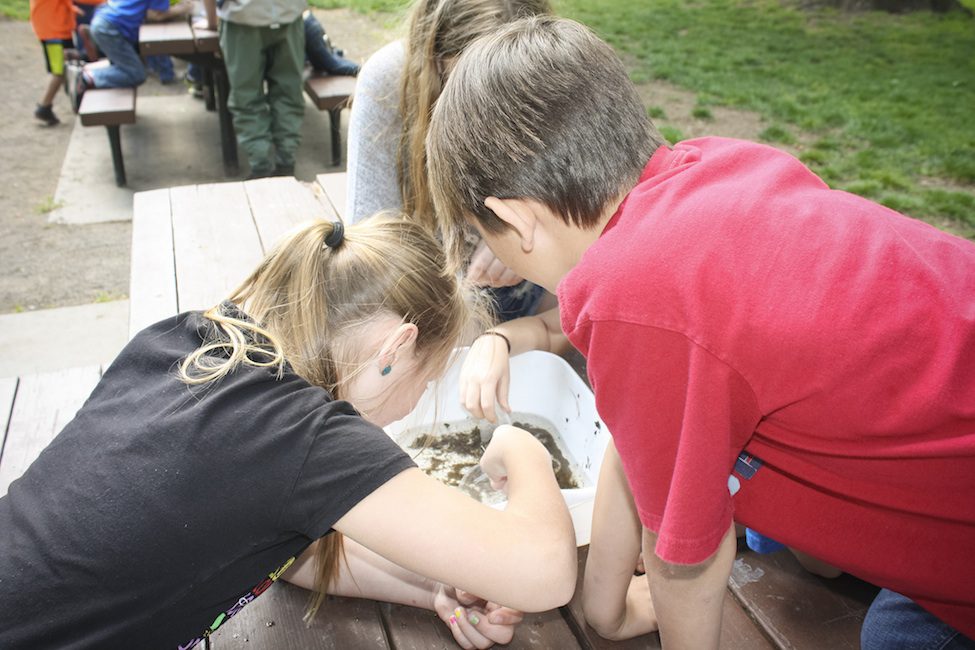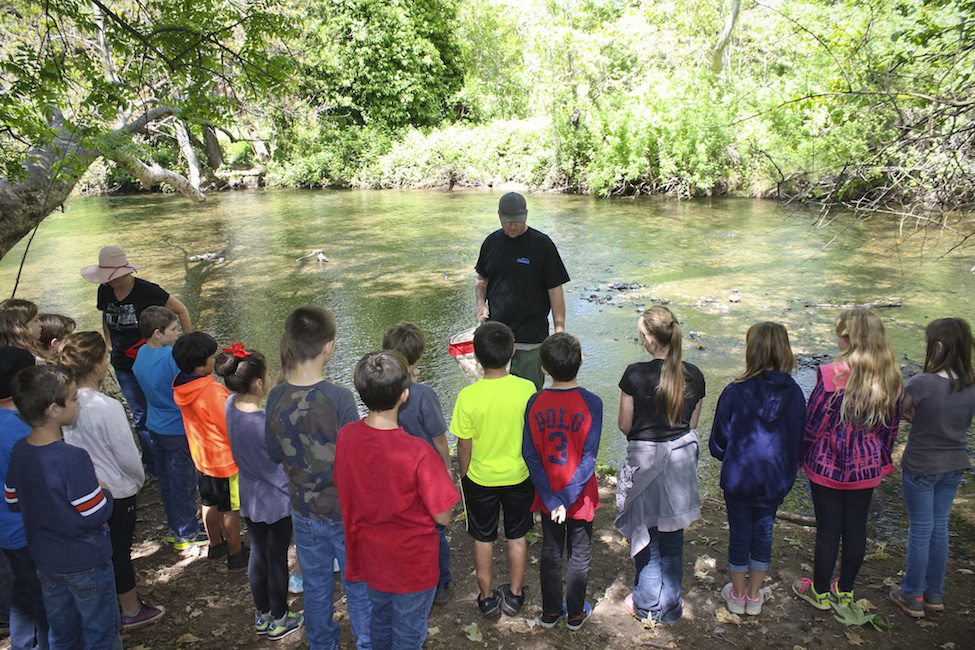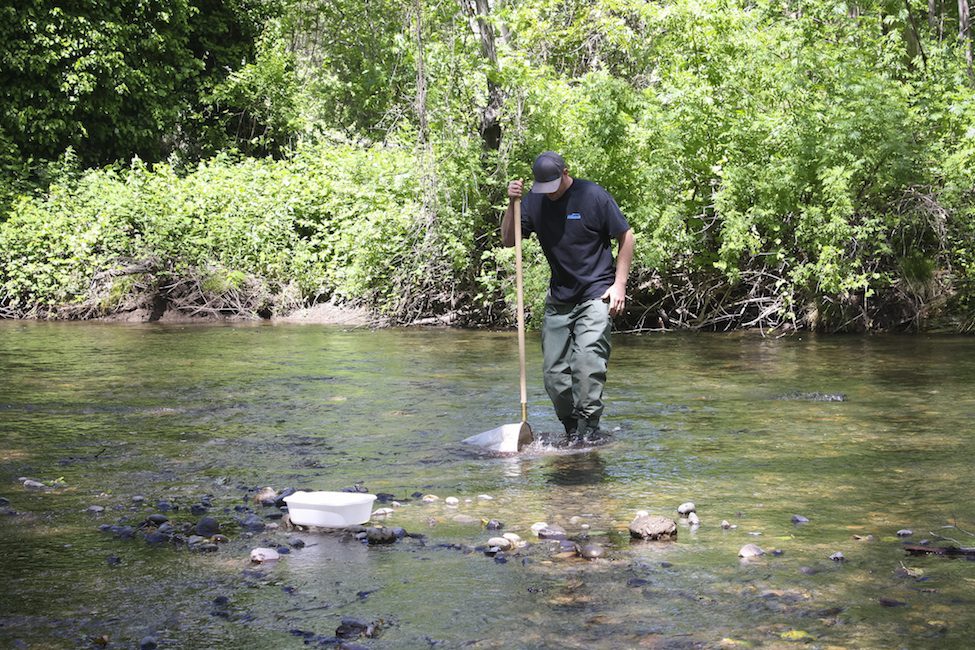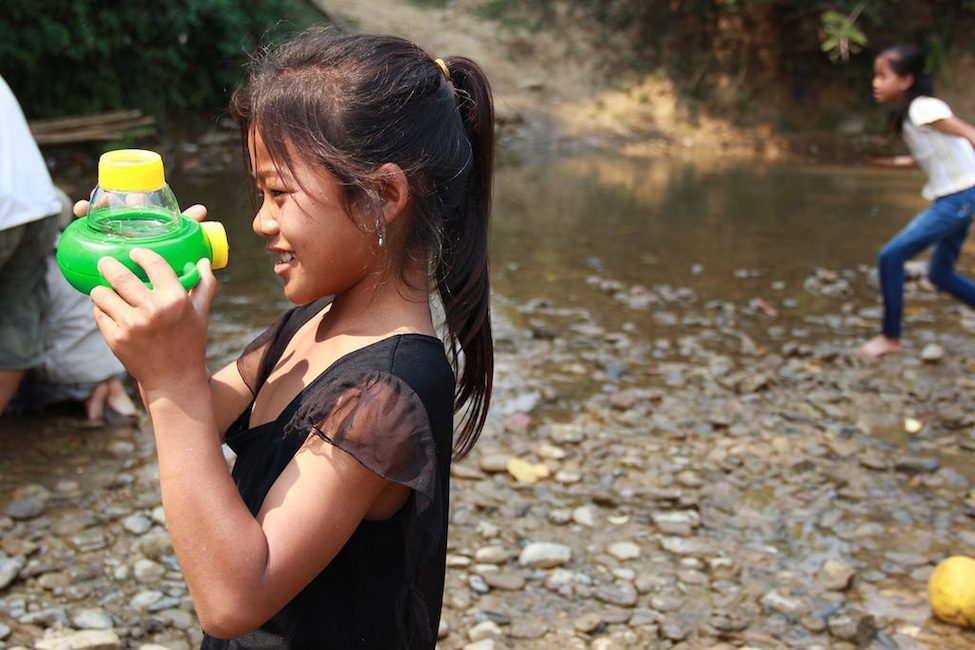Wednesday June 22, 2016
 One of the activities we take the most pride in is providing educational opportunities for children in the communities where we work. From small rural villages in the Mekong region to several different classrooms in California, FISHBIO staff have helped teachers and students learn more about the science and conservation of fish and aquatic communities through our Three Rivers education program. As scientists, we believe it’s important to devote some of our time to education because communicating ideas effectively is an essential component of the scientific process, and teaching young students helps us take broad topics and boil them down to easily digestible core ideas. Our most recent educational outing took place in Chico’s Bidwell Park, where we met with a group of students from Oroville’s Ophir Elementary.
One of the activities we take the most pride in is providing educational opportunities for children in the communities where we work. From small rural villages in the Mekong region to several different classrooms in California, FISHBIO staff have helped teachers and students learn more about the science and conservation of fish and aquatic communities through our Three Rivers education program. As scientists, we believe it’s important to devote some of our time to education because communicating ideas effectively is an essential component of the scientific process, and teaching young students helps us take broad topics and boil them down to easily digestible core ideas. Our most recent educational outing took place in Chico’s Bidwell Park, where we met with a group of students from Oroville’s Ophir Elementary.
 After a brief stop at the Chico Creek Nature Center, two members of FISHBIO’s Chico office met with the group on the bank of Big Chico Creek to discuss the lifecycle of the Chinook salmon, including the differences between salmonid life stages, the rates at which they survive to these life stages, and our role in salmon conservation. After fielding a round of diverse questions ranging from, “How big do salmon get?” to “What’s your favorite fish?,” the students were treated to a demonstration of the kick netting technique used in benthic macroinvertebrate sampling. The students were then provided with a sample of these benthic bugs along with a dichotomous key, and were given a chance to identify the invertebrates to species, which proved to be a lively, hands-on experience.
After a brief stop at the Chico Creek Nature Center, two members of FISHBIO’s Chico office met with the group on the bank of Big Chico Creek to discuss the lifecycle of the Chinook salmon, including the differences between salmonid life stages, the rates at which they survive to these life stages, and our role in salmon conservation. After fielding a round of diverse questions ranging from, “How big do salmon get?” to “What’s your favorite fish?,” the students were treated to a demonstration of the kick netting technique used in benthic macroinvertebrate sampling. The students were then provided with a sample of these benthic bugs along with a dichotomous key, and were given a chance to identify the invertebrates to species, which proved to be a lively, hands-on experience.
 This activity mirrored one that FISHBIO provided to students in Laos in partnership with The Asia Foundation. As part of our outreach to communicate the importance of benthic macroinvertebrate sampling within a tributary of the Mekong River, Lao students took to the field with bug viewers to get an up-close view of what the fish are eating in their local streams, and learned how water bugs can serve as indicators of the health of the river. Science is about discovery, and judging by the excitement generated by both of these events, we hope that we have helped to inspire a future generation of scientific minds.
This activity mirrored one that FISHBIO provided to students in Laos in partnership with The Asia Foundation. As part of our outreach to communicate the importance of benthic macroinvertebrate sampling within a tributary of the Mekong River, Lao students took to the field with bug viewers to get an up-close view of what the fish are eating in their local streams, and learned how water bugs can serve as indicators of the health of the river. Science is about discovery, and judging by the excitement generated by both of these events, we hope that we have helped to inspire a future generation of scientific minds.

